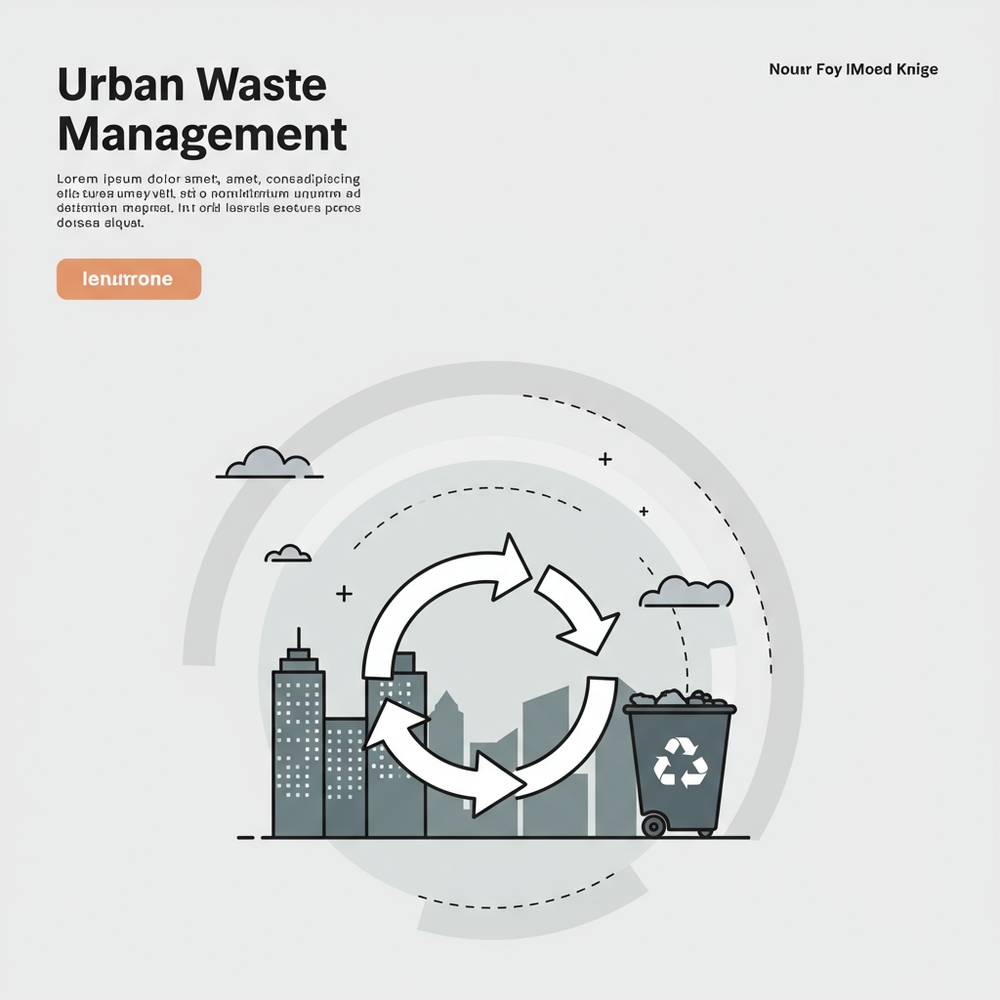Mastering Urban Waste Management Strategies for Cleaner Cities

Managing trash in a city is a growing concern that affects not only public health but also the environment and urban aesthetics. With the rise of urban populations, effective waste management has become more critical than ever. In this blog post, we’ll explore the challenges cities face regarding waste management, innovative solutions to combat these challenges, and how community involvement plays a crucial role in creating cleaner cities.
The Problems of Waste Management in Urban Areas
Urban environments generate massive amounts of waste daily. Here are some of the key problems cities face when it comes to managing this waste:
1. Overwhelm of Waste Generation
- Volume of waste: Cities produce an astounding amount of waste, which can exceed the capabilities of local waste management systems.
- Diverse waste types: From organic materials to plastics, the variety of waste makes it challenging to manage and process.
2. Landfill Overcapacity
- Limited space for landfills: Many cities are running out of space for new landfill sites, leading to increased transportation costs and environmental degradation.
- Pollution: Overflowing landfills can lead to soil, water, and air pollution, posing serious health risks to communities nearby.
3. Inefficient Collection and Sorting Processes
- Outdated infrastructure: Many urban areas still rely on traditional waste collection methods that are inefficient.
- Lack of recycling: Insufficient recycling initiatives result in recyclable materials ending up in landfills, rather than being reused.
4. Public Awareness and Behavior
- Lack of education: Residents may not be aware of proper waste disposal methods or the benefits of recycling.
- Inconsistent participation: Even with available resources, participation in waste segregation often varies, resulting in contamination of recyclable materials.
Innovative Solutions to Improve Waste Management
While urban waste management presents significant challenges, there are effective solutions that cities can implement to create a cleaner and more sustainable environment.
1. Investing in Technology
- Smart bin technology: Using sensors in waste bins can alert waste management services when they need to be emptied, optimizing collection routes and reducing fuel emissions.
- Waste-to-energy technologies: Converting waste materials into energy not only reduces landfill usage but also provides a renewable energy source.
2. Community Engagement and Education
- Awareness campaigns: Implementing local campaigns to educate citizens about the importance of waste reduction, recycling, and proper disposal methods can significantly increase participation.
- Volunteer programs: Encouraging community members to participate in trash clean-up events fosters a sense of ownership and responsibility for their environment.
3. Implementing Waste Segregation Policies
- Mandatory segregation: Establishing laws requiring residents to separate their waste into recyclables, organics, and landfill can improve recycling rates.
- Incentives for participation: Offering discounts on waste collection fees for those who consistently recycle or reduce waste can motivate residents to take part in these initiatives.
4. Building Renewable Infrastructure
- Composting facilities: Creating local composting options can reduce organic waste going to landfills while providing useful material for gardening and landscaping.
- Recycling centers: Establishing more easily accessible recycling centers encourages residents to dispose of their recyclable materials correctly.
Collaboration Between Stakeholders
Addressing urban waste management requires cooperation between various stakeholders:
- City governments: Policy-making and infrastructural investment are vital responsibilities for local authorities.
- Private sectors: Businesses can adopt sustainable practices that minimize waste and collaborate with cities on responsible disposal solutions.
- Residents: Community participation in waste management initiatives enhances the effectiveness of these solutions.
Conclusion
The challenges of trash management in urban areas are significant, but with the right strategies and community engagement, we can create cleaner, more livable cities. By investing in technology, promoting public awareness, implementing effective policies, and fostering collaboration among all stakeholders, urban waste management can become more efficient and sustainable. Together, we can build a future where waste is minimized and effectively managed, leading to healthier environments for all.
Call to Action
Are you ready to take action in your community? Start by educating yourself and others on waste management practices you can implement today!